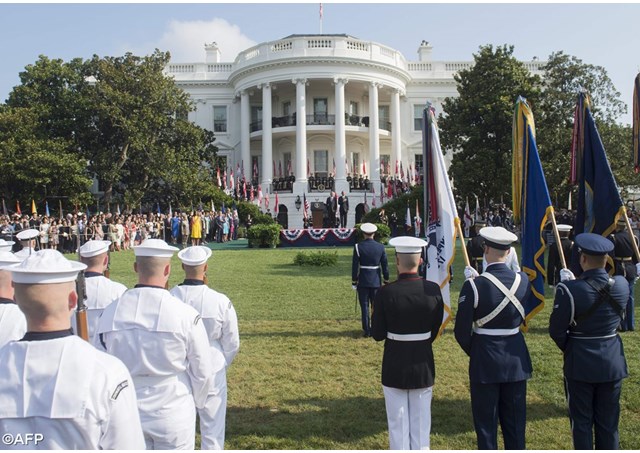
U.S. Bishops invite discernment ahead of presidential elections

(Vatican Radio) As Americans prepare to vote in an increasingly divisive presidential election, the Catholic bishops of the United States are urging U.S. Catholics to catch up on some summer reading. They’ve republished an updated version of “Forming Consciences for Faithful Citizenship,” their teaching document on the political responsibility of Catholics.
Listen to our report:
Scandals, fear mongering, insults and lies – this electoral campaign pitting Republican Donald Trump against Democrat Hillary Clinton has seen it all. And U.S. bishops have seen enough. Reissuing their 2007 online document, they’re calling on American Catholics to think hard about their political responsibilities. And rather than blindly casting their vote for a certain ideology or a particular political party, to choose the common good and consider” all that protects or threatens human dignity.”
Subdivided into three parts, the bishops’ document begins with a reflection on the Church’s social doctrine, then presents a summary of the U.S. Bishops’ position on the principal ethical questions facing today’s society: defense of human life, peace and economic justice, the protection of minors and religious freedom, and safeguarding the planet.
The document has been updated from its original version to include the later magisterium of Pope Benedict XVI and that of Pope Francis and takes into account recent developments in the US in both domestic and foreign policy.
It is a call, they say, to “people of good will to use this statement to help form their consciences; to teach those entrusted to their care; to contribute to civil and respectful public dialogue; and to shape political choices in the coming election in light of Catholic teaching.”
New concerns have evolved in recent years
The document specifically cites as concerns:
"The ongoing destruction of over one million innocent human lives each year by abortion • Physician-assisted suicide • The redefinition of marriage—the vital cell of society—by the courts, political bodies, and increasingly by American culture itself • The excessive consumption of material goods and the destruction of natural resources, which harm both the environment and the poor • The deadly attacks on fellow Christians and religious minorities throughout the world • The narrowing redefinition of religious freedom, which threatens both individual conscience and the freedom of the Church to serve • Economic policies that fail to prioritize the poor, • A broken immigration system and a worldwide refugee crisis • Wars, terror, and violence that threaten every aspect of human life and dignity."
“All of these threats, and more,” write the bishops, “speak to a breakdown in what Pope Francis has called an ‘integral ecology.’ Without the proper ordering of relationships of persons with each other, with creation, and ultimately with God himself, sin takes hold. Pope Francis reminds us that all individuals, nations, and members of the global community have the duty to place the needs of others ahead of selfish desires to possess and exploit the good things that come from God’s hand.”
| All the contents on this site are copyrighted ©. |


